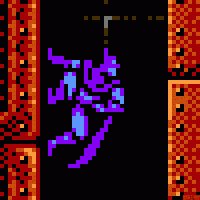Now That's What I Call Board Games vol. 20
Dune: Imperium, designed by Paul Dennen of Clank! fame, was dropped by Dire Wolf late last year to much fanfare and effusive praise. It appears to be the rare contemporary game that rises above the cruft and seems to be a Notable Release, the kind of game that galvanizes players and commentators in a way that any number of crowdfunded titles simply do not among the endless sewer flow of new releases. Now, I am not writing this review to yuck the collective yum here nor am I positioning myself as a voice of opposition to Dune: Imperium because it is in fact a very good and sometimes outstanding game. I would even go so far as to say that it is a very worthy successor to EON’s 1979 ludic take on the Frank Herbert novels – it is more accessible, more playable, and more consistent than that masterpiece and it conveys the themes, settings, and actions of Dune almost as well.
But here’s the real talk. Dune: Imperium, for all of its overall quality, has absolutely nothing innovative, new, fresh, or even particularly interesting to add to the medium. The high level view is that this design is a cobbled-together aggregate of several elements from the past ten-odd years of game design. It’s a worker placement game with deckbuilding and area control. You do a bunch of things that feel like things you’ve done in other games. The influence of Lords of Waterdeep and Tyrants of the Underdark are unmistakable, and I’m sure most players could point to numerous other examples of mechanical and processional functions that they’ve seen in other designs.
The analogy I keep returning to is that Dune: Imperium is a greatest hits compilation – it’s all the bangers, all the top tracks welded together to make an album. Sometimes, this works out: there are greatest hits or singles compilations that are also great albums. However, these records are engineered to please fans, casual listeners, and those who only want the big, successful singles. The audience that wants “Born to Run” and “Dancing in the Dark” on one record doesn’t necessarily care about “State Trooper” or a live cover of Suicide’s “Dream Baby Dream”. I think this is the case with Dune: Imperium. It’s all the popular mechanisms and gameplay concepts, and it feels very much like a game crafted to be a crowd pleaser. It almost defies specific criticism because it’s simply made to work and work well, built on the bones of past successes like so many games today are.
I know most readers of game reviews want to read article that are basically recaps of rulebooks and a component list with a softball “buy or try” opinion but I’ve never done that and I’m not doing that here. The game does pretty much everything you would expect – or, indeed, want – to do in game based on the Dune books and upcoming film. It really covers a lot of narrative ground. You’ll scheme as the Harkonnens, conspire with the Bene Geserit, cut deals with the Spacing Guild, go to war in the Arakeen desert, and engage in political machinations in the Landsraad. The economy is Melange and water and Solaris. There are Sardaukar terror troops, crysknives, and stillsuits. As well as Timothy Chalamet and Oscar Isaac.
The thing is, the worker placement/deckbuilding/area control triad works very well in expressing all of this, and Mr. Dennen is to be commended for building a Dune game that is very much more than the sum of its parts. It feels Dune-y, and as someone who has spent the better part of my life as a Dune stan I’m over the moon with having another Dune game and especially a modernDune game.
Yet I can’t help but be disappointed that this game isn’t doing more, especially in comparison with EON’s 40-year old take that still feels fresh, innovative, and forward-thinking today. Beyond that, I’m also finding this game to be such a cynical design, a workmanlike piece of artistic capitulation that more or less is stating that there is nothing left to do other than things we’ve done before and nowhere else to go other than where we’ve already been.
But to flip that argument around, I do not think that Dune: Imperium necessarily has to be a vanguard work no more than I think a novel or a record or a film has to be something completely maverick in order to succeed. In fact many great works are syncretic, drawing on and restating influences without necessarily pushing anything forward. It is not a requirement that a game do something new and innovation is sometimes not as thrilling or satisfying as the familiar, repurposed and recontextualized into something of the moment.
And the truth of it is that I really enjoy this game, I like or love just about everything about it. The drama is good. The battles can be devastatingly surprising, and the economy is compelling. There are tons of decisions every turn, but the worker placement scheme is the very epitome of too much to do, to little to do it with angst. Yeah, the board is really fucking ugly and it follows on the current graphic design trend in games where “charts” is the aesthetic model. But it does succeed at putting me in the shoes of Leto Atreides or Baron Harkonnen and I come away each game satisfied that I’ve played something fun, engaging, and well-made.
Maybe that is the best we can ask for here in 2021, when most games are designed primarily to lure rubes into big one-time pre-purchases of crowdfunded garbage- a solid, well-made game that doesn’t do anything progressive for the medium or for the form but does plenty to make us happy by giving us things that made us happy before. I suppose I’ll take it, but I can’t shake the feeling that an IP that has inspired Jodorowsky, Giger, Grimes, Moebius, Lucas, EON, and countless other creatives should be doing more than playing the hits.
 Games
Games How to resolve AdBlock issue?
How to resolve AdBlock issue? 





























